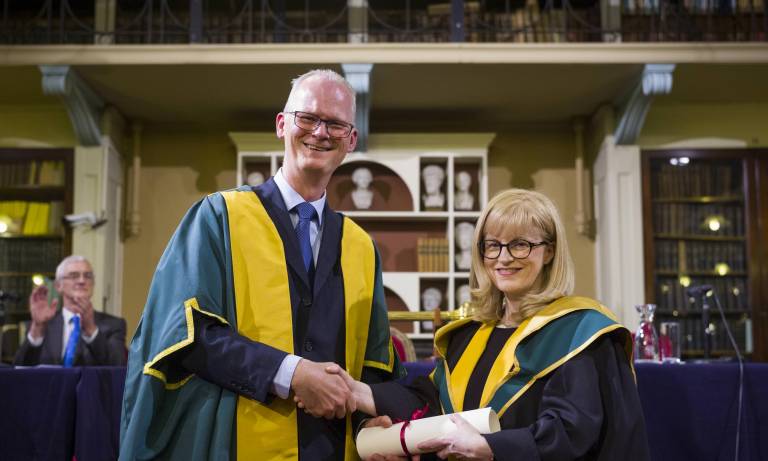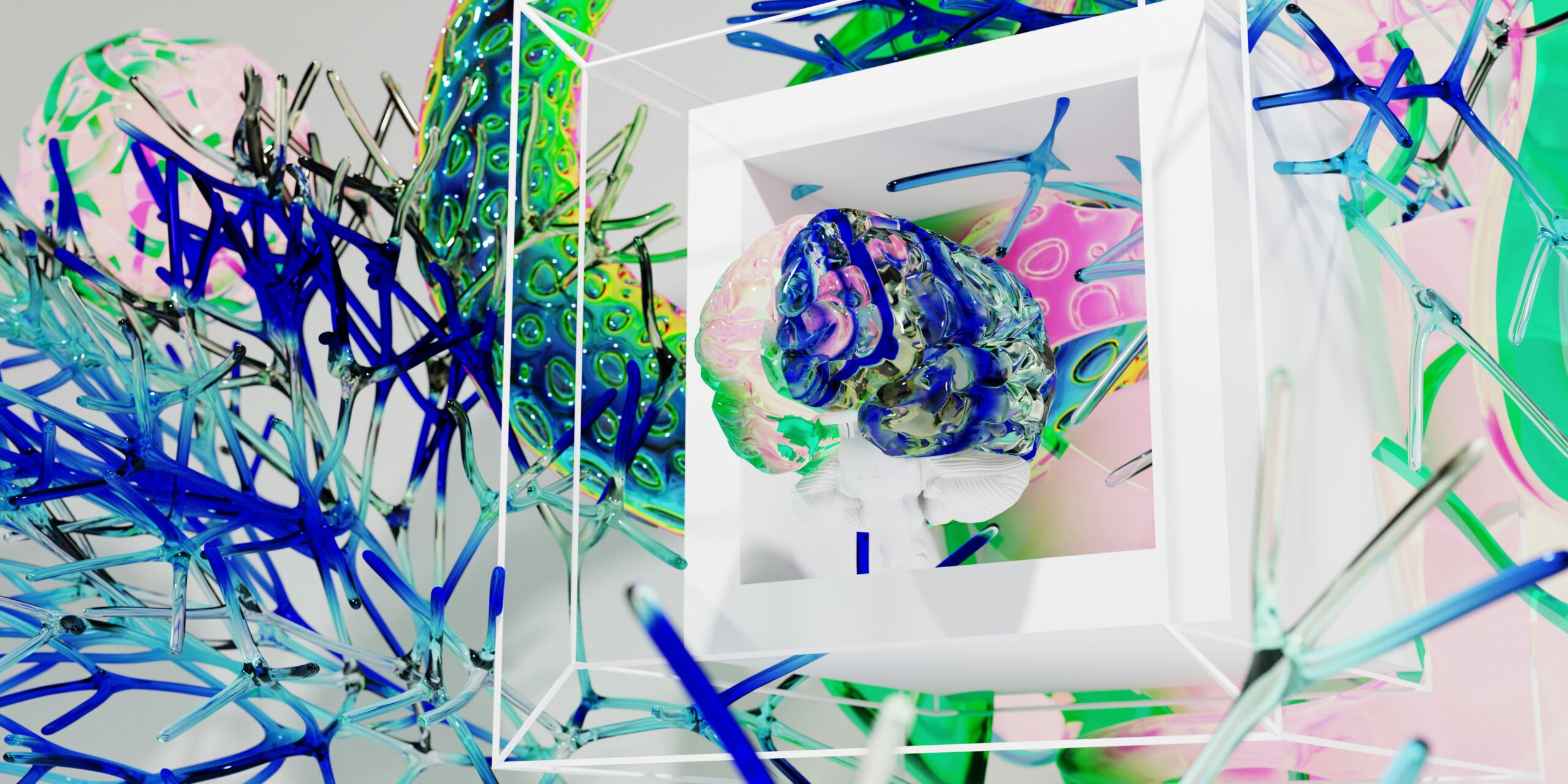This week, the neuroscience world lost one of its brightest minds. Professor Eleanor Maguire, a pioneering researcher in memory and navigation, passed away after a long battle with cancer. Her groundbreaking work transformed how we understand the brain and inspired countless students, colleagues, and thinkers to push the boundaries of human knowledge.
Eleanor Maguire’s research is best known for its remarkable insights into neuroplasticity and the brain’s ability to adapt and change throughout life. Her work on London taxi drivers, famously tasked with mastering “The Knowledge,” revealed how intense, focused learning can physically reshape the brain. But her contributions didn’t stop there. From uncovering the deep connection between memory and imagination to decoding the intricacies of hippocampal function, Maguire leaves behind a legacy that continues to shape neuroscience.
Her story is an incredible reminder of the potential we all hold. Maguire’s research shows us that if we pursue lifelong learning, the brain is far more adaptable than we might imagine. Here is how.
Who Was Eleanor Maguire?
Professor Eleanor Maguire was a cognitive neuroscientist and professor at University College London (UCL). Her work centered on understanding the hippocampus, a part of the brain critical for memory, spatial navigation, and imagining the future.
✿ Thank you for reading!
Subscribe to be our bestie, no spam—just good vibes once a month.
She became internationally renowned for her studies on London taxi drivers, demonstrating how learning “The Knowledge” (a detailed mental map of London’s streets and landmarks) led to physical changes in their hippocampi. This research became a landmark study in neuroplasticity, proving that even adult brains can undergo significant adaptation and growth.
Her contributions went beyond the taxi driver studies. Maguire’s research revealed profound insights into memory, imagination, and how we navigate the world. She inspired generations of neuroscientists and was beloved by students for her approachable, passionate teaching style.

The Taxi Driver Study and A Revolutionary Discovery
Maguire’s most famous work began with a simple question: How does mastering an incredibly complex skill, like memorizing 25,000 streets in London, affect the brain?
To answer this, she and her team conducted a study using MRI scans to compare the brains of London taxi drivers with those of non-taxi drivers. Here’s what they found:
Before Training: Aspiring taxi drivers showed no significant difference in hippocampus size compared to a control group.
After Training: Once qualified, the taxi drivers had larger hippocampi than the control group and their own pre-training scans.
This groundbreaking finding proved that even as adults, our brains remain capable of growth and change. Learning “The Knowledge” pushed the hippocampus—responsible for memory and navigation—to physically adapt to meet the demands of the task.
The Broader Impact of Her Work
While the taxi driver study is her most celebrated research, Eleanor Maguire’s contributions to neuroscience go much further:
Memory and Imagination: She discovered that individuals with amnesia, who struggle to recall past events, also find it difficult to imagine the future. This finding linked memory, imagination, and navigation in ways that reshaped our understanding of brain function.
Decoding Memories: Maguire pioneered methods to analyze patterns of activity in the hippocampus, showing that individual memories could be decoded by studying brain activity.
Navigating Life: Her research clarified how the brain integrates memory and spatial navigation, connecting how we recall life episodes to how we move through physical spaces.
Why Lifelong Learning Matters for Your Brain
Eleanor Maguire’s work on neuroplasticity is a testament to the brain’s incredible ability to grow, adapt, and evolve—no matter your age. Here’s why constant learning is essential:
Learning Physically Changes Your Brain
Her taxi driver study revealed that learning something deeply challenging can reshape the brain. Intense learning strengthens neural connections, creating a more adaptable and resilient brain.
It Protects Against Cognitive Decline
Engaging in lifelong learning keeps your brain active and healthy. Studies show that challenging the brain with new skills or knowledge reduces the risk of age-related cognitive decline.
Neuroplasticity Is for Everyone
Whether it’s mastering a new language, taking up an instrument, or solving puzzles, anyone can benefit from the brain’s ability to adapt. Maguire’s research showed that even complex learning tasks like “The Knowledge” can lead to measurable brain growth in adults.
Practical Tips for Lifelong Learning
Inspired by Maguire’s legacy, here are ways to engage your brain and embrace neuroplasticity:
Learn a New Skill: Take up a hobby or skill that challenges you. Whether it’s cooking, coding, or a new language, novelty stimulates brain growth.
Exercise Regularly: Physical activity improves blood flow to the brain, enhancing cognitive function and neuroplasticity.
Explore Navigation: Ditch your GPS and challenge yourself to navigate new routes. Spatial awareness sharpens the hippocampus.
Visualize Your Goals: Practice imagining scenarios in detail—this strengthens memory and creativity.
Stay Curious: Read, attend workshops, or explore podcasts to keep your mind active and engaged.
Three Books to Deepen Your Understanding
The Brain That Changes Itself by Norman Doidge
A fascinating exploration of neuroplasticity, featuring real-life stories of people whose brains transformed through learning and recovery.
Mindset: The New Psychology of Success by Carol S. Dweck
This book explores how adopting a growth mindset can help you overcome challenges and unlock your potential.
Memory: From Mind to Molecules by Larry Squire and Eric Kandel
A comprehensive guide to understanding the science of memory and how it shapes our lives.
Remember Eleanor and Learn More
Eleanor Maguire wasn’t just a neuroscientist; she was a trailblazer who showed us the boundless potential of the human brain. Her research proved that learning isn’t just about acquiring new skills; it’s about transforming ourselves.
As we honor her legacy, let’s commit to embracing the challenges that push us to grow. Whether it’s mastering a new skill, taking on a career change, or simply engaging in curiosity-driven learning, remember that your brain is capable of extraordinary things. The next time you’re faced with a steep learning curve, think of Eleanor Maguire. Remember that every effort you make to learn, adapt, and grow isn’t just shaping your mind; it’s shaping your future.
January, 11, 2025
Connecticut
✱ If you liked this article, please share it with a friend who could use inspiration.
If you have a topic in mind or a story to share anonymously or with your name, email us at team@she.work









